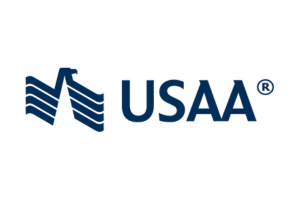
Insurance companies take on your risks in exchange for the cost of your insurance premium. In exchange for your premium, they make you an agreement that if one of the covered perils in your policy happens to you, they will pay for your repairs, expenses, or other things you might need in the event of this covered emergency, less a deductible in some cases. The cost of your insurance premium depends on the amount of insurance coverage you purchase (and many other factors depending on the insurance product), but the premium you pay is typically much less than the amount of coverage you're promised to receive from your insurance company in the event you need it.
It is important to know as much as you can about your renter's insurance company before taking out a policy with them. Talking to a local, experienced insurance agent can help answer any questions you may have.
So, how do insurance companies make money if they're always paying out insurance claims much higher than the premiums they're paid in the first place?
Do you know how to calculate your risk?
Insurance companies calculate your individual risk to them when they insure you. No matter if it's a car, homeowners, renters, life, health, or any of the other many potential types of insurance. Insurance companies will have a way to calculate the risk you pose to them to have to pay out a claim. For example, a life insurance company uses a person's age and health to calculate how long they would have to pay their life insurance premium in order to make it worth it to pay out their premium once they die. If insurance companies think you pose a high risk, then your insurance rates will be higher than the average person, or they may choose not to insure you at all.
What are premiums?
The insurance policy premiums you pay are how the insurance companies make money. Although you pay your insurance premium yearly, you most likely won't make a claim yearly, and many other policyholders won't make one either. Despite this, it's not uncommon for a company to pay out more in claims in a given year than they make in premium. Take State Farm, for example.
In 2017, State Farm, the biggest property and casualty insurer in the United States, took in $63.9 billion in premiums but had a combined underwriting loss of $6.5 billion in losses. This loss was largely due to the significant catastrophes in 2017.
This impact from the 2017 catastrophes was seen across the board for property and casualty insurance companies. The industry had a net underwriting loss of $23.5 billion in 2017, compared to an underwriting loss of $5.5 billion in 2016.
So if insurance companies are enduring an underwriting income loss, how are they managing to stay afloat?
How is your insurance premium money used?
Some of your insurance premiums go to your insurance company's investment income, and in turn, these investments allow insurance companies to make money to protect against underwriting losses. In order to generate more revenue, insurance companies typically will use a portion of their premiums to make investments. Usually, insurance companies will make safe, low-risk investments, and are able to effectively create more revenue this way. Investing this money allows insurance companies to survive during times when underwriting losses may exceed the amount they've collected in insurance premiums, such as the significant losses in 2017.
Your premium income is also used to help your insurance company pay out other people's claims. Think of paying into an insurance premium like a bunch of neighbors all putting their money into one bank account and agreeing that if one neighbor ever needs the money, they can withdraw it out of the account, as long as they've paid their dues when other neighbors have needed it. Your insurance premium is pooled in with everyone else's, and if you, or someone else, needs to make a claim and receive assistance, the money is there for you.
Keep in mind that insurance companies also have other costs beyond paying claims. Insurance companies need to pay their employees, pay for reinsurance, pay for licensing, in addition to many of the other costs most businesses have. This is another reason why it's important for companies to use the money they make to invest and earn more revenue.
A few insurance companies are proactive in using some of their revenue to do some good for their community, like Lemonade for example. Lemonade differs from other insurance companies in the way that it sets up its financial model. The company takes a 20 percent flat fee from your premium and uses the rest of it to pay claims. If all the money isn't used to pay out claims, it gets donated to a non-profit of the policyholder's choosing.
It's important to find an insurance company that's financially stable but has a good reputation for paying their policyholder's claims when they are in need. The last thing you want when faced with a car accident, or any other type of emergency the various types of insurance will cover, is to have to fight your insurance company for the coverage outlined in your policy. You can see the highest-rated car insurance and homeowners insurance companies based on consumer feedback and experiences.
Before making any final decisions on your insurance company, it is important to learn as much as you can about your local insurance providers, and the coverages they offer. Call your local insurance agent to clear up any questions that you might have. Questions to consider asking include, "What is the best coverage plan for me/my family/my situation?" "What are the minimum coverage requirements in my state and what form of coverage do you recommend?" "Do you guys offer any bundle discounts if I take out both my auto insurance and home insurance with you?" and "What is the average rate of insurance quotes you guys offer?"
Learn about the insurance company and the protection that their policies offer before making a final decision. Know and understand your policy limits and ask about what additional coverages you can add to your protection. Talk to a local insurance agent about what insurance company is right for you, and what coverages they offer.
The content on this site is offered only as a public service to the web community and does not constitute solicitation or provision of legal advice. This site should not be used as a substitute for obtaining legal advice from an insurance company or an attorney licensed or authorized to practice in your jurisdiction. You should always consult a suitably qualified attorney regarding any specific legal problem or matter. The comments and opinions expressed on this site are of the individual author and may not reflect the opinions of the insurance company or any individual attorney.







